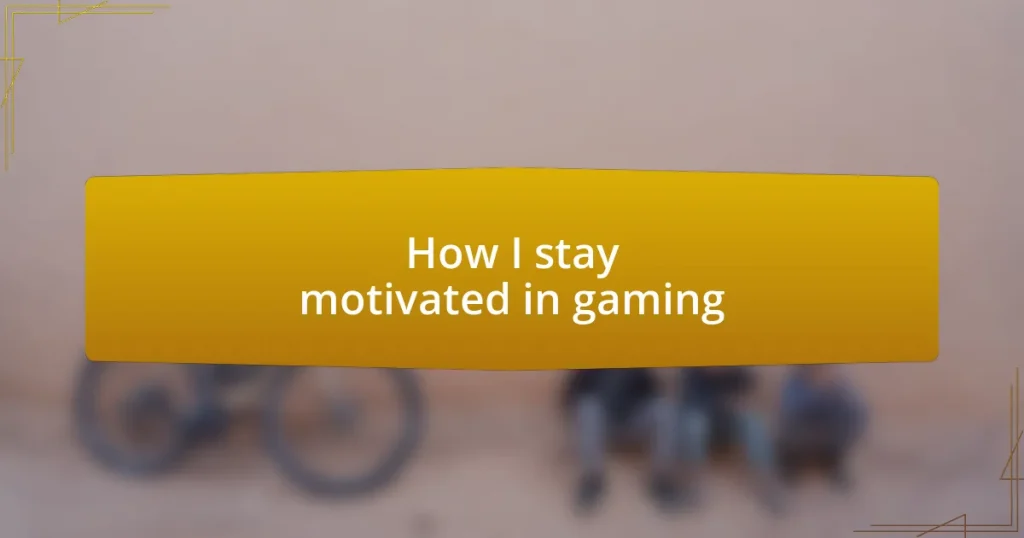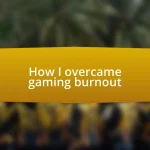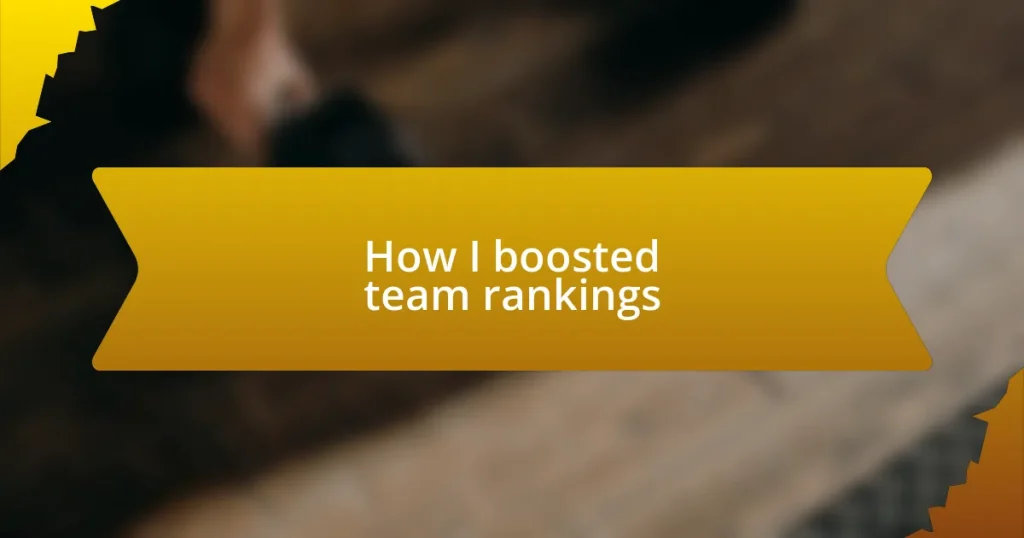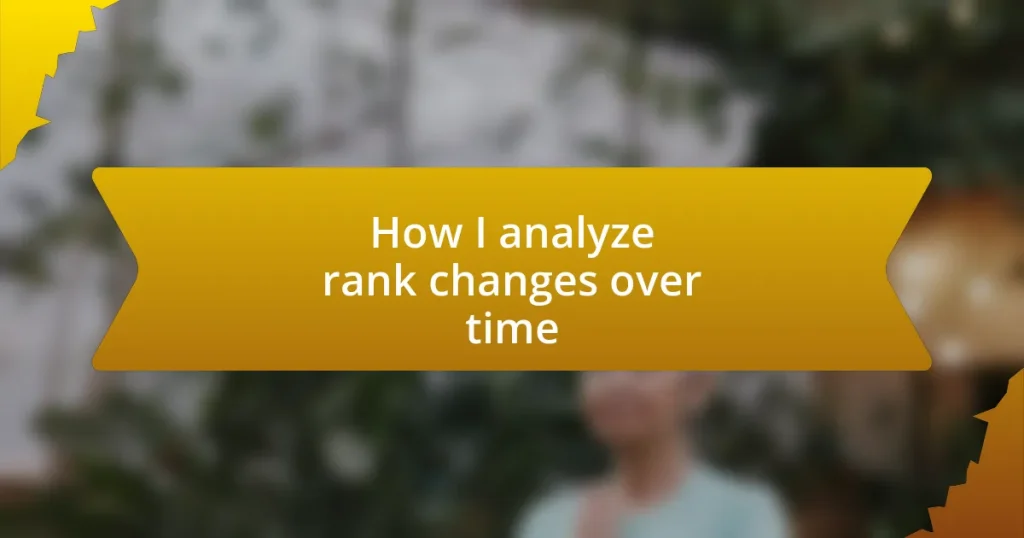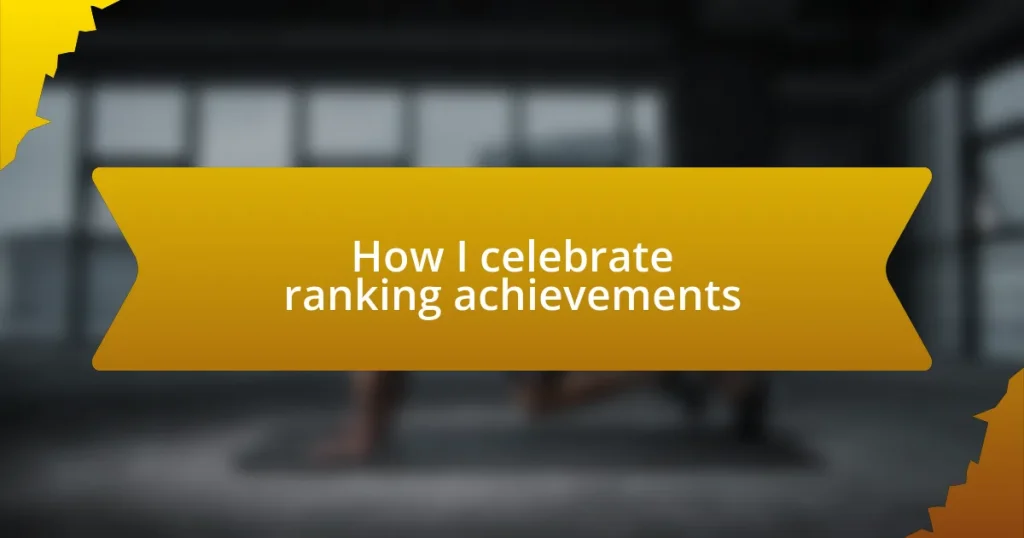Key takeaways:
- Understanding personal motivations in gaming enhances engagement, from emotional connections to social interactions.
- Setting clear and achievable gaming goals fosters a sense of purpose and helps manage frustration during challenges.
- Building a supportive community boosts motivation, offering collaboration, encouragement, and a sense of belonging.
- Implementing a routine and utilizing rewards can keep gaming experiences enjoyable and fulfilling while preventing burnout.
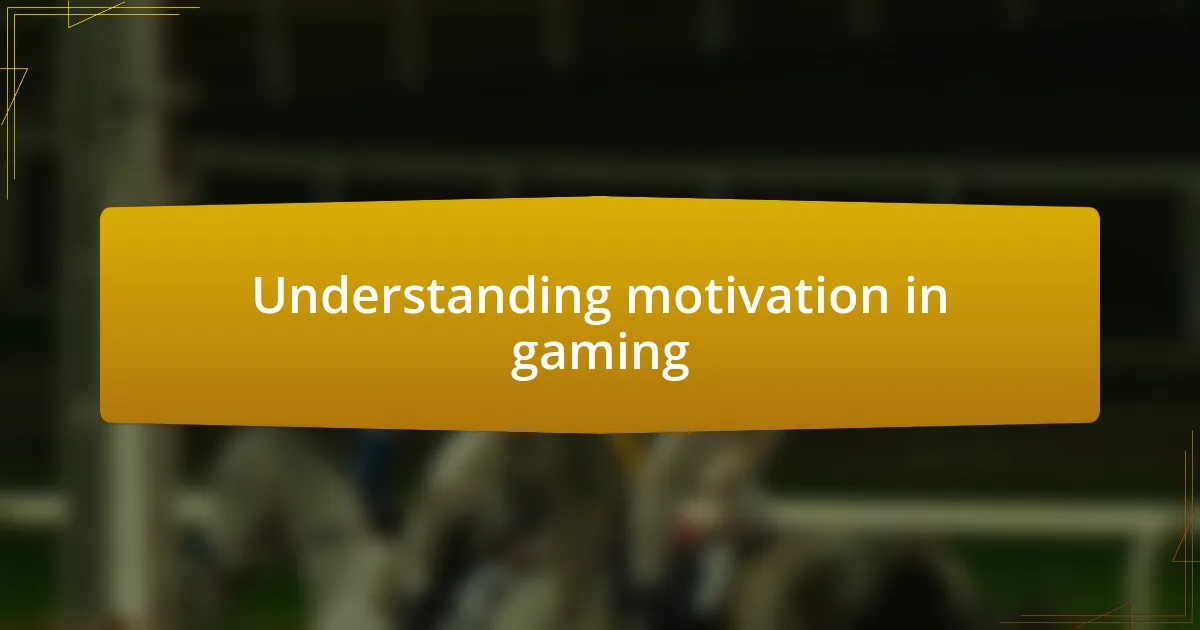
Understanding motivation in gaming
Understanding motivation in gaming is deeply personal and varies from player to player. I remember the first time I tackled a challenging boss that had me stuck for weeks; the thrill of finally defeating it wasn’t just about winning; it was the sense of accomplishment that fueled my motivation to keep playing. How often do we find ourselves drawn to games that push our limits, igniting that fiery determination within us?
At the heart of our motivation lies the emotions we experience while gaming. I often find myself captivated by the stories and characters, feeling a genuine connection that makes me eager to progress. Have you ever felt that rush of excitement when uncovering a plot twist or achieving a personal best? It’s these emotional experiences that create a deeper investment in the game, propelling us to keep playing even when faced with obstacles.
Moreover, motivations can shift depending on what we seek from gaming; whether it’s relaxation, competition, or social connection, each reason offers a different driving force. I thrive in multiplayer settings, where the camaraderie and friendly rivalry keep my enthusiasm alive. What’s your motivation? Recognizing what drives us can enhance our gaming experiences, transforming gameplay into a personal adventure that resonates long after we log off.
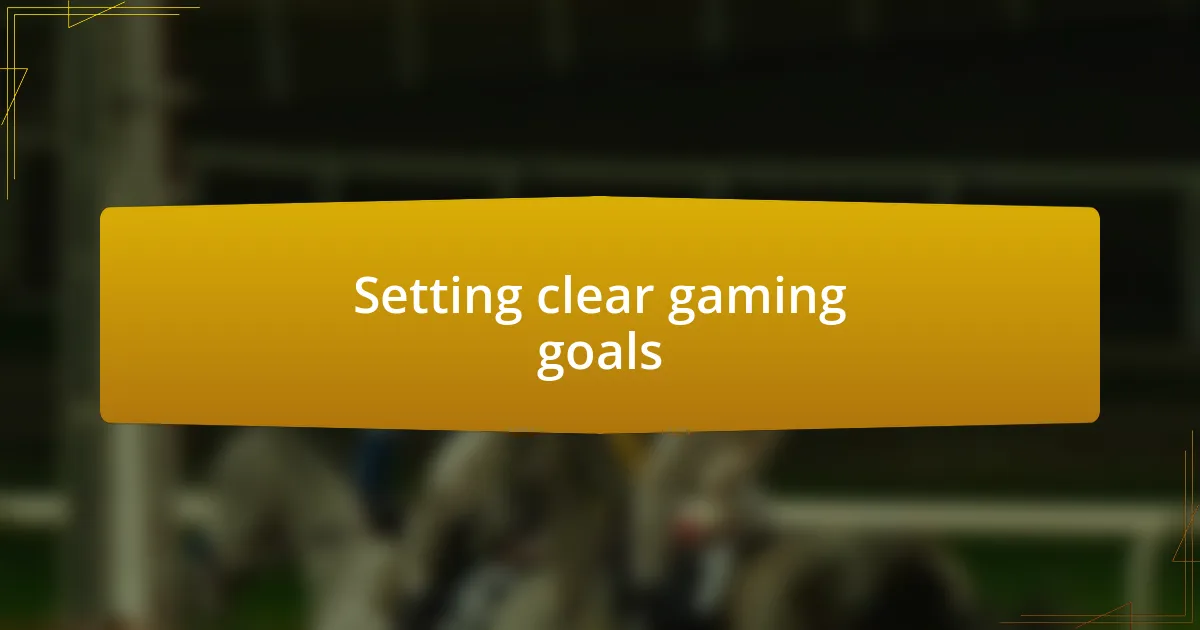
Setting clear gaming goals
Setting clear gaming goals has been a game-changer for me. When I approach a new title, I often outline what I want to achieve, whether it’s completing a campaign, mastering a specific character, or hitting a particular rank. I remember diving into a competitive shooter for the first time and deciding to set a goal of hitting the top 10% in ranked matches; it transformed my gameplay. That clarity not only focused my efforts but also deepened my sense of purpose in each session.
Having specific goals can keep frustration at bay. When challenges arise, I can remind myself that each setback is a step toward progress. Here’s how I recommend setting your gaming goals:
- Identify short-term goals (e.g., finishing a level or unlocking a character).
- Define long-term objectives (e.g., achieving a certain rank or completing all side quests).
- Be realistic about your skills and available time.
- Adjust goals as needed based on your progress and interests.
- Celebrate milestones, no matter how small, to maintain motivation.
Each of these steps has helped me stay engaged, ensuring that every gaming session feels fulfilling. Goals act as a roadmap, guiding me through the journey while keeping my enthusiasm alive along the way.
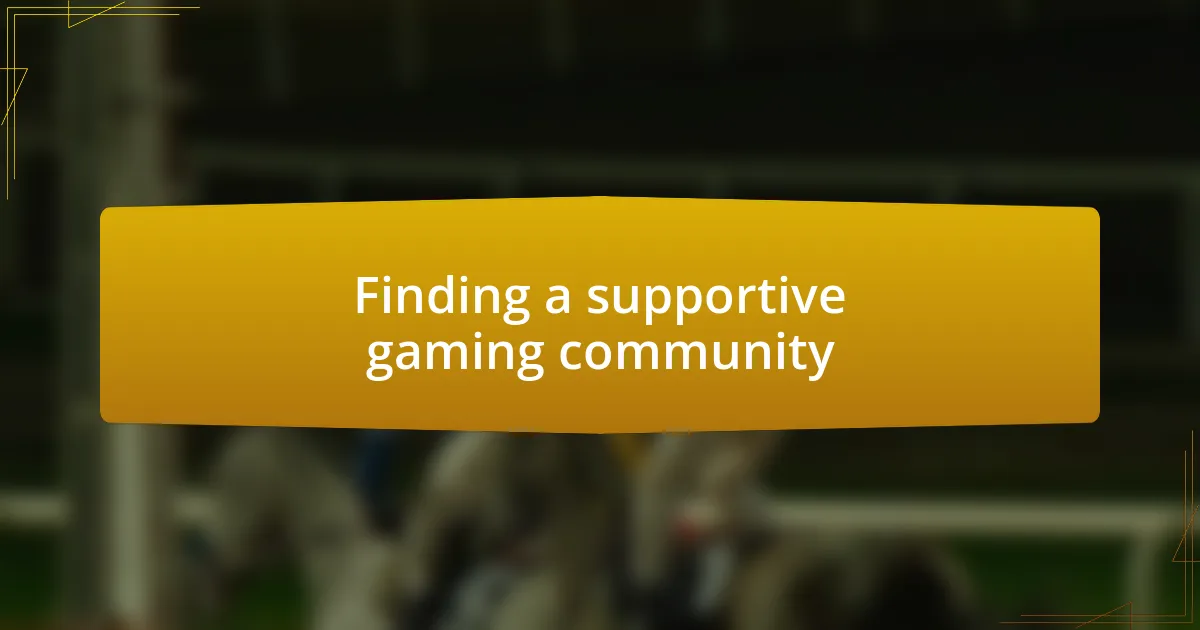
Finding a supportive gaming community
Finding a supportive gaming community is vital for staying motivated in gaming. I remember the first time I joined an online guild for my favorite MMORPG. The shared enthusiasm among members was contagious; it felt like suddenly being part of a like-minded family. Together, we tackled quests, shared tips, and celebrated our victories, which made the gaming experience significantly more enjoyable and engaging.
Connecting with others also opened up opportunities for collaboration. When I was struggling with a particularly difficult dungeon, my guildmates rallied together, offering advice and encouragement. Their support not only boosted my skills but also lifted my spirits. Knowing that I had friends cheering me on transformed those challenging moments into valuable learning experiences.
Engaging with a community lets you share your passion for gaming and fosters a sense of belonging. I often find solace in forums and Discord servers dedicated to specific games, where gamers share their triumphs and challenges. This camaraderie reinforces my motivation, reminding me that I’m not alone in my gaming journey, which is truly empowering.
| Community Type | Description |
|---|---|
| Online Guilds | Collective gaming groups that often provide camaraderie and resources for players. |
| Discord Servers | Real-time chat platforms where gamers can communicate, collaborate, and form friendships. |
| Forums | Dedicated discussion boards where players can share strategies, tips, and gaming experiences. |
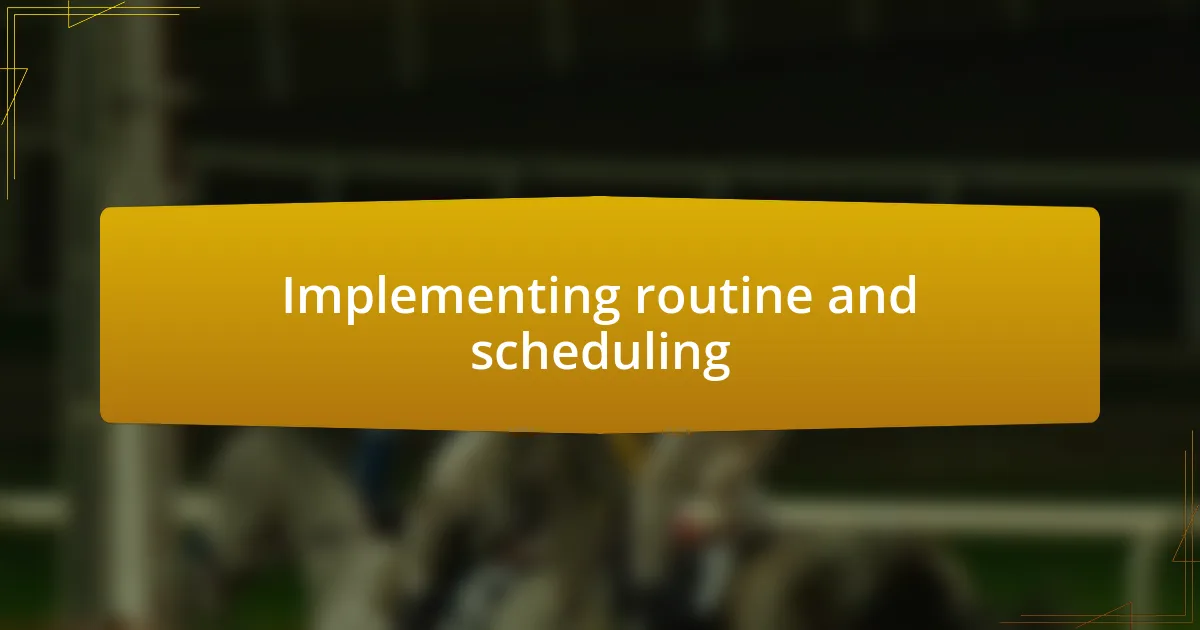
Implementing routine and scheduling
Implementing a routine in gaming can profoundly enhance my experience and keep my motivation high. Personally, I’ve found that setting specific days and times for gaming not only helps make gaming a part of my lifestyle but also gives me something to look forward to each week. Remembering those late Friday nights when I’d settle in, snacks at hand, ready to dive into a new game – it was like my personal ritual that made each session feel special.
Scheduling regular gaming sessions with friends has also transformed my motivation. I recall a time when we designated Sunday afternoons for our multiplayer adventures. Knowing that we had a set time to regroup meant I could plan my week around those sessions, adding anticipation and excitement to my daily routine. Have you ever felt that rush of eagerness when you know a gaming night with friends is approaching?
Moreover, creating a balance between gaming and other responsibilities ensures that I stay engaged without feeling overwhelmed. I try to limit my gaming time to a couple of hours on weekdays and then indulge in longer sessions on weekends. This way, I maintain my enthusiasm while also respecting my personal commitments. It’s a delicate dance, but having that structure keeps my passion alive and thriving.
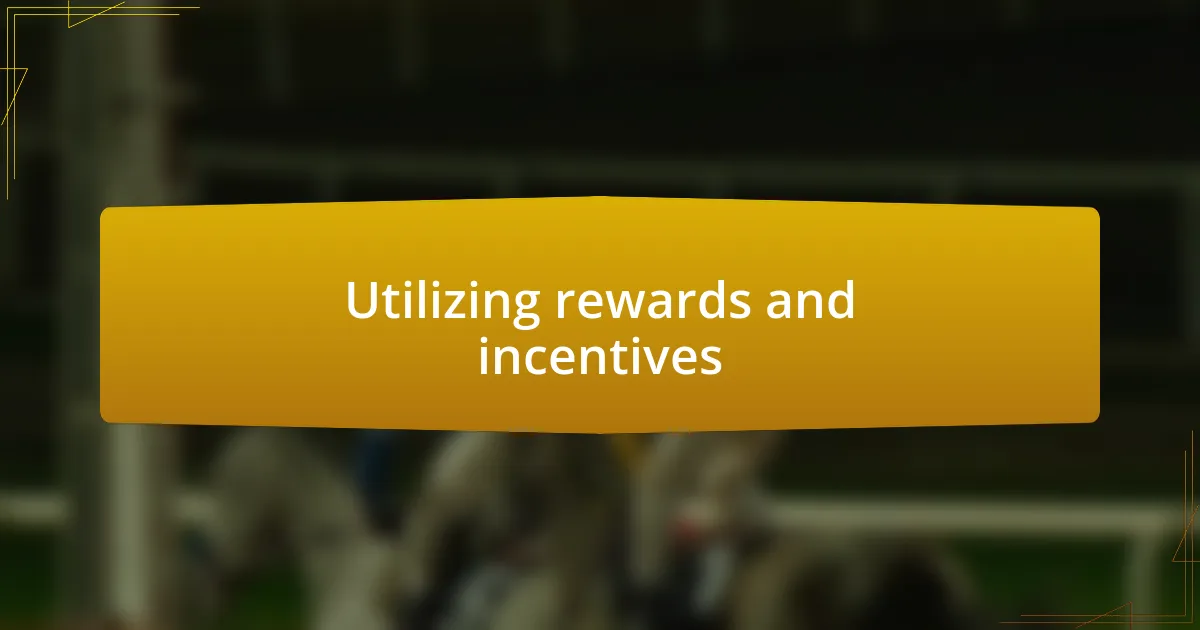
Utilizing rewards and incentives
Utilizing rewards and incentives can add a whole new layer of excitement to my gaming experience. I often set personal challenges, like completing a game 100% or hitting a high score, and when I accomplish these goals, I reward myself. Sometimes it’s as simple as treating myself to a gaming accessory I’ve had my eye on. Have you ever felt that surge of satisfaction when you treat yourself for a job well done?
I also find that participating in in-game events, where rewards are up for grabs, can significantly boost my motivation. For instance, I remember a thrilling season in a game where I scored exclusive skins by completing specific challenges. The stakes were high, but the potential rewards made each mission feel worth it. This made me invest more time and effort, and that adrenaline rush is truly irreplaceable.
Moreover, creating a points system for my gaming time can serve as a great incentive. I log hours spent playing and reward myself once I hit certain milestones—like a binge-worthy episode of my favorite show or a fancy treat from my go-to café. This not only turns my gaming routine into a rewarding experience but also keeps my enthusiasm alive. Isn’t it amazing how a bit of anticipation can make every gaming session feel even more rewarding?
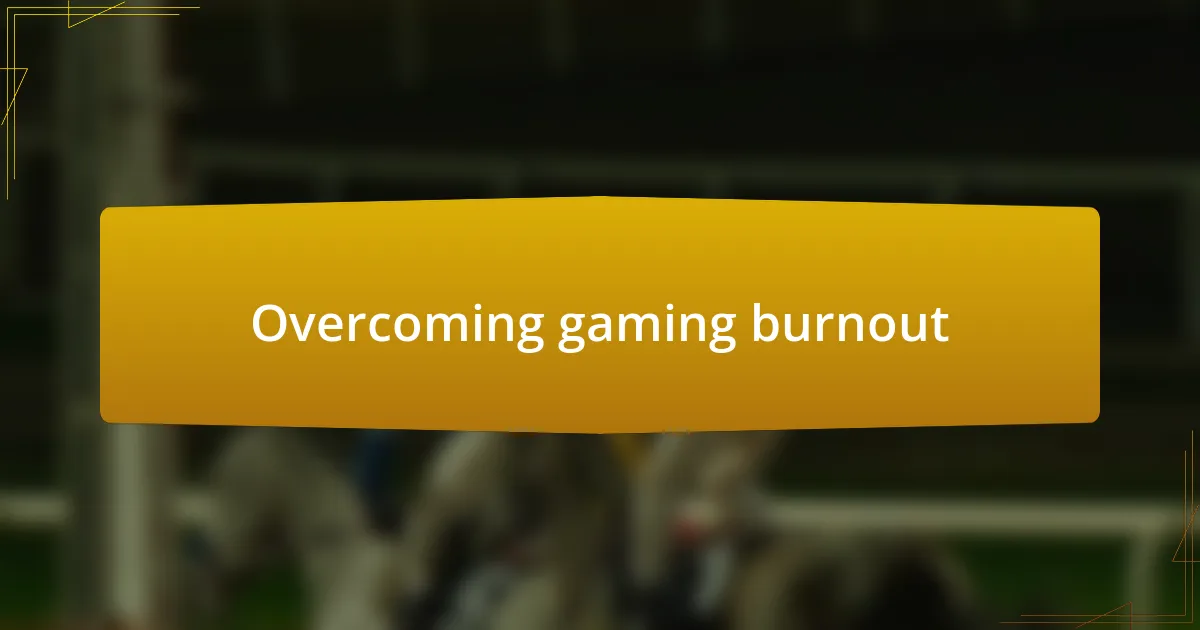
Overcoming gaming burnout
Gaming burnout can hit hard, and I’ve certainly felt its weight. I remember a time when logging in felt like a chore rather than a joy. To overcome that, I started mixing up my game choices. Switching from a high-pressure shooter to a relaxing puzzle game allowed me to recharge while still enjoying the act of gaming. Have you ever noticed how a change in pace can breathe new life into your passion?
Another strategy I employ is taking regular breaks. I set a timer to remind myself to step away every hour or so. During these breaks, I might stretch, grab a snack, or even watch a quick video. This simple act of stepping back helps me clear my mind. It’s incredible how a few minutes away can reset my focus—do you find that a quick break can help your gaming concentration too?
Additionally, I’ve learned the importance of reflecting on what I truly enjoy about gaming. Sometimes it’s easy to get lost in the grind, chasing achievements rather than relishing the experience. I often take a moment to revisit older games I loved, reconnecting with what first drew me to gaming. What game do you feel nostalgic about? Finding joy in those familiar experiences has really helped revive my passion when burnout sets in.
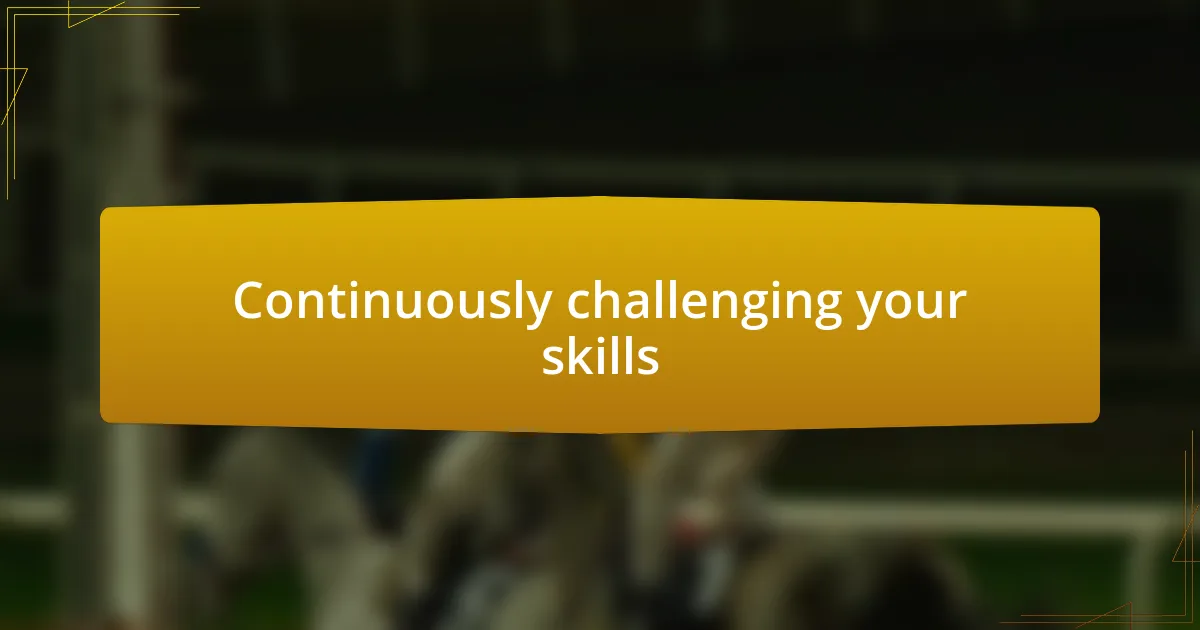
Continuously challenging your skills
Continuously challenging yourself in gaming keeps the experience fresh and engaging. I remember when I first tackled a difficult level in a game that had been stumping me for weeks. The sense of achievement that washed over me when I finally conquered it was exhilarating. Have you ever faced a challenge that felt insurmountable, only to emerge victorious?
To elevate my skills, I frequently push myself to try new characters or strategies. I recall a time while playing a competitive multiplayer game; I deliberately chose a character I was unfamiliar with. It required me to think differently and adapt quickly, which in turn sharpened my overall gameplay. Isn’t it interesting how stepping outside our comfort zones can lead to unexpected growth?
Another avenue I explore is participating in online competitions or challenges. I vividly remember entering a speedrunning event—it was intense, and my hands were clammy with nerves. But the rush and the motivation to improve my skills were unparalleled. Have you considered competing or collaborating with others to boost your drive? Engaging with a community and learning from others can significantly enhance your journey, making you a better gamer in the process.










